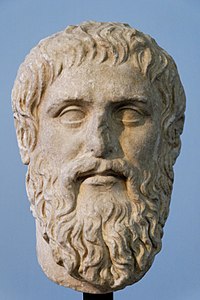The Limits of Direct Democracy
Posted on November 1, 2011

It was the Athenians who are credited with inventing democracy, a noble experiment that frequently lurched towards despotism. At its height, Athenian democracy had about 30,000 participants in a nation-state that included around of a quarter of a million people.
Of course, at that time, only men were allowed to participate in the Assembly. Women and slave were not allowed a vote, and as time went on the Greeks invented all kinds of rules to keep the numbers of actual assembly members down to manageable mob.
To Plato, “Democracy... is a charming form of government, full of variety and disorder; and dispensing a sort of equality to equals and unequals alike.”
It must not have been that charming, as it didn’t last all that long.
I was thinking about Athenian democracy in the context of the decision by the Greek government to hold a referendum on the question as to whether the Greek people agree with the latest bailout plans of the European Union.
Most experts agree that giving the people a chance to vote directly on a proposition that requires them to except higher taxes and less help from the government is probably not going to win.
Let’s face it. Voters typically don’t vote to make their lives more difficult.
That is why we have representative democracy in America and in many other places on the globe. We send representatives to make the tough decisions and then we have the great pleasure of voting them out of office when we decide that we don’t agree with those tough decisions.
It is hoped that once those tough decisions are made, that they are awfully hard to reverse and that the power of incumbency can help keep a solid majority of representatives in office.
We have seen first hand in America what happens when the voters have too much power to decide policy questions. If you think that referendum democracy works, just take a quick look at the state of California. California is a complete disaster, and that is chiefly caused by its referendum addiction.
It was Winston Churchill who said: “The best argument against democracy is a five minute conversation with the average voter.”
And to my friends who think that such sentiments are un-American and treasonous, get a clue. The voters by and large don’t know what the hell they are talking about. As Jefferson put it: “A democracy is nothing more than mob rule, where fifty-one percent of the people may take away the rights of the other forty-nine.”
That being said, it is a complete disaster that the Greek people are having an opportunity to weigh in collectively on this bailout package. As much as we may hope that they will do the right thing and vote to accept it, history would seem to indicate that this will go down, before it comes back up again.
Greek Prime Minister George Papandreou told a cabinet meeting on Tuesday: "The referendum will be a clear mandate and a clear message in and outside Greece on our European course and participation in the euro. No one will be able to doubt Greece's course within the euro."
Put me down as a skeptic. Referendum democracy doesn’t work. Representative Democracy does work. Greece is teaching us a valuable lesson once again. There are limits to effectiveness to direct democracy. Pay attention.
